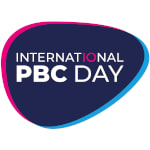International PBC Day Date in the current year: September 13, 2026
 International PBC Day, also known as PBC Awareness Day and Primary Biliary Cholangitis Awareness Day, is observed annually on the second Sunday of September. It raises awareness of an autoimmune disease that slowly destroys small bile ducts in the liver.
International PBC Day, also known as PBC Awareness Day and Primary Biliary Cholangitis Awareness Day, is observed annually on the second Sunday of September. It raises awareness of an autoimmune disease that slowly destroys small bile ducts in the liver.Primary biliary cholangitis (PBC) is an autoimmune disease in which the immune system attacks the small bile ducts in the liver, causing their slow, progressive destruction. This results in a build-up of bile and other toxins in the liver, leading to a condition called cholestasis. Patients with untreated PBC may develop cirrhosis, a condition in which normal liver tissue is replaced by scar tissue.
The first recorded report of a health condition that was likely to be PBC dates to 1851. The first detailed description of the condition was published in 1950; it was originally called primary biliary cirrhosis. In 2014, the disease was renamed primary biliary cholangitis for two main reasons. First, not all patients with PBC develop cirrhosis. Second, cirrhosis is stigmatized because it is often associated with alcohol abuse, even though it is caused by other medical conditions in many cases. The renaming was intended to distance PBC from this stigma.
As with other autoimmune diseases, the exact cause of PBC is unknown, though sex hormones are believed to play a role in its development, as 90% of those affected are women. PBC is largely asymptomatic in the early stages and its most common symptoms, fatigue and mild-to-moderate itching (pruritus), are nonspecific. Patients with more severe PBC may experience jaundice and xanthomas, which are yellowish papules, nodules or plaques that appear on the skin.
Most patients are diagnosed with PBC incidentally while they are asymptomatic. They are usually referred for testing after routine blood work reveals abnormal liver function test results, or because they have another autoimmune condition. PBC often occurs alongside rheumatoid arthritis, Sjögren’s syndrome, lupus, systemic sclerosis, and other conditions.
There is no cure for PBC. Treatment focuses on slowing the progression of the disease and preventing cirrhosis and liver failure. The primary treatment is ursodeoxycholic acid (UDCA), which usually needs to be taken for life. Patients who do not respond well to UDCA or cannot tolerate it are prescribed second-line treatments, such as obeticholic acid (OCA).
Patients with PBC may also be prescribed bile acid-binding agents to relieve itching and dietary supplements to compensate for poor absorption of fat-soluble vitamins. Maintaining a balanced diet and avoiding alcohol is also recommended. Patients with advanced PBC may require a liver transplant. Unfortunately, the disease may recur after transplantation.
The first PBC Day was organized by the UK-based PBC Foundation on September 9, 2012. Since then, it has become an international awareness day held annually on the second Sunday in September. The main goals of International PBC Day are to raise awareness of PBC, combat the stigma associated with liver diseases, and raise funds to support PBC patients and further research.
- Category
- International Observances
- Tags
- International PBC Day, international observances, awareness days, PBC Awareness Day, Primary Biliary Cholangitis Awareness Day